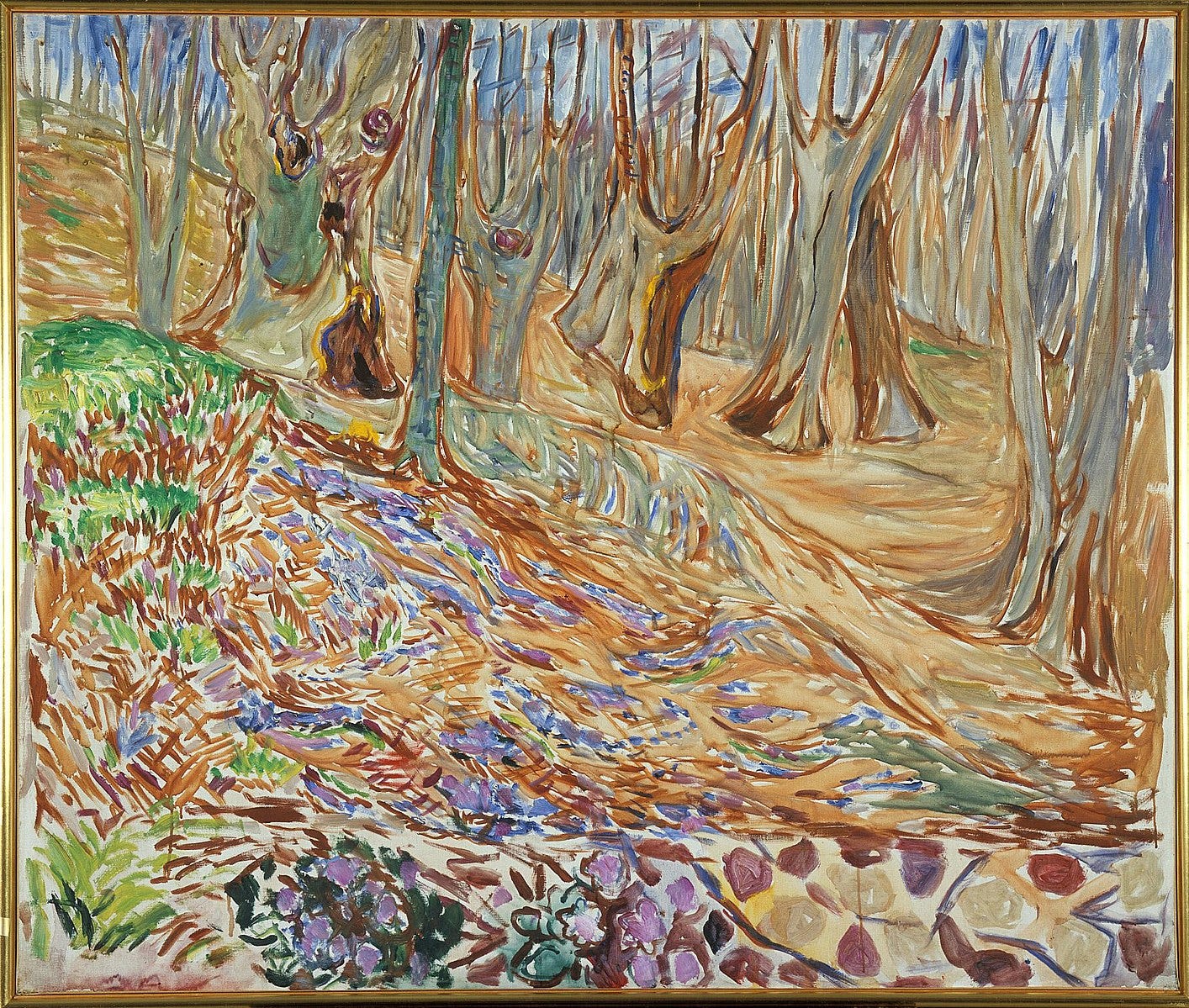Talk about Trees
On German lyric poetry between Brecht and Hilbig
These past few weeks I’ve been writing a profile on Wolfgang Hilbig for Poetry Magazine. It’ll be published around June, roughly coinciding with the release of Territories of the Soul/On Intonation through Sublunary Editions, a volume of poetry and prose from the East German writer. So far as I know, the profile will be the first article of its kind in the English-language press, certainly the first of its kind focusing on Hilbig’s poetic career. I feel pressure to do him justice, so I have to remind myself that the hard part—translating German—is over and I can lean into the experience I already have. It should make the last drafts and revisions relatively easy, but that might be tempting fate. We’ll see.
Spring is still well underway in the Northeast, with cherry and dogwood trees in full flower, ferns in the understory leafing out, and it made me think of an interesting passage from Michael Opitz’s biography on Hilbig, a key source for interpreting his work, both during translation and during the writing of the profile. As a young man, Hilbig was fond of German romanticism, particularly the writings of Novalis and E.T.A. Hoffmann, and used tropes and language from the movement throughout his work. In particular, he was drawn to the figure of the Waldgänger, or forest wanderer, a person (usually male) who ventures alone deep into the woods to commune with nature, gather his thoughts, and meet his destiny.
The crimes of the Nazi era threw a cold light on the romantic cult of nature. The myth of Germans as forest people stretched back to the Renaissance and before. It crystallized into a potent force for nationalism during the Romantic era, with works such as Herman’s Battle by Heinrich von Kleist, which depicted the triumph of Arminius against the Romans in 9AD at the Battle of Teutoburg Forest. Writing at the beginning of the Second World War, Bertolt Brecht sensed the terminal rot at the heart of these old national myths. He repudiated them in “To Those Born After”, one of his best poems.
Was sind das für Zeiten, wo Ein Gespräch über Bäume fast Verbrechen ist Weil es ein Schweigen über so viele Untaten einschließt! What times are these, in which conversation about the trees is almost crime. For in doing so, we keep silent on so many misdeeds!
These lines anticipate Adorno’s dictum, “To write poetry after Auschwitz is barbaric,” but are even more pointedly directed, specifically at a writer like Hilbig, who drew direct inspiration from the tradition being criticized. The latter poet evidently took this critique to heart, and in 1988 he composed “To Brecht” in response.
Warum sollen unsere Kinder die anhand des Wortes foltern die Deklination erlernen nicht ein Gespräch über Bäume führen wo dies wirklich ein Verbrechen ist kleiner als so viel Untaten die das Schweigen entschließen And why shouldn’t our children, tortured by punctuation carry on conversation about the trees a small crime compared to the many misdeeds that silence maintains
It would be simplistic if not outright wrong to say that this is a refutation of Brecht. As the son of a soldier killed on the Eastern Front, who lived through aerial bombardment and saw the inmates of a local concentration camp marched through his hometown, Hilbig was not blind to the criminality and wholesale destruction of the Nazi regime. Yet even as he came into his own as a writer, he still retained that kernel of romanticism within him. It was fundamental. It couldn’t be dropped, at least not by him, but it could be expanded upon; it could be enlarged and complicated. For Hilbig, it was permissible (or at least possible) to write about landscape, to write about solitary figures in that landscape, just as long as traces of that barbarity remain perceptible, unhidden, to the reader. The way out of the forest was through.



Well, Brecht did insert that equivocating "fast", which one tends to ignore in the momentum of his rhetoric.
In other matters, I am off to Berlin for a month. Please let me know when you are there or in the Northwest. My email is dwrob@oneeyedman.net. I don't check Twitter anymore, alas.